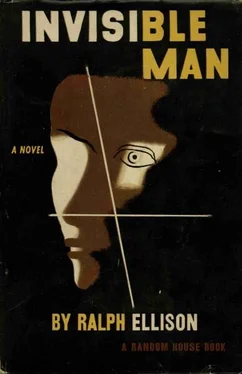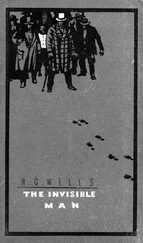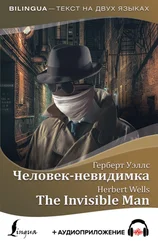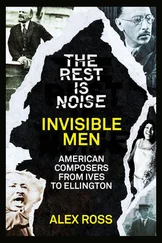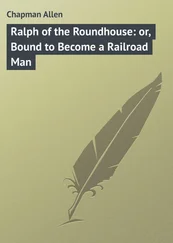Ralph Ellison - Invisible man
Здесь есть возможность читать онлайн «Ralph Ellison - Invisible man» весь текст электронной книги совершенно бесплатно (целиком полную версию без сокращений). В некоторых случаях можно слушать аудио, скачать через торрент в формате fb2 и присутствует краткое содержание. Год выпуска: 1995, ISBN: 1995, Издательство: Vintage Books, Жанр: Классическая проза, на английском языке. Описание произведения, (предисловие) а так же отзывы посетителей доступны на портале библиотеки ЛибКат.
- Название:Invisible man
- Автор:
- Издательство:Vintage Books
- Жанр:
- Год:1995
- ISBN:9780679732761
- Рейтинг книги:4 / 5. Голосов: 1
-
Избранное:Добавить в избранное
- Отзывы:
-
Ваша оценка:
- 80
- 1
- 2
- 3
- 4
- 5
Invisible man: краткое содержание, описание и аннотация
Предлагаем к чтению аннотацию, описание, краткое содержание или предисловие (зависит от того, что написал сам автор книги «Invisible man»). Если вы не нашли необходимую информацию о книге — напишите в комментариях, мы постараемся отыскать её.
The Waste Land,
Invisible man — читать онлайн бесплатно полную книгу (весь текст) целиком
Ниже представлен текст книги, разбитый по страницам. Система сохранения места последней прочитанной страницы, позволяет с удобством читать онлайн бесплатно книгу «Invisible man», без необходимости каждый раз заново искать на чём Вы остановились. Поставьте закладку, и сможете в любой момент перейти на страницу, на которой закончили чтение.
Интервал:
Закладка:
Without my overcoat it was cold. A feeble light burned above the entrance, sparkling the snow. I crossed the alley to the dark side, stopping near a fence that smelled of carbolic acid, which, as I looked back across the alley, caused me to remember a great abandoned hole that had been the site of a sports arena that had burned before my birth. All that was left, a cliff drop of some forty feet below the heat-buckled walk, was the shell of concrete with weirdly bent and rusted rods that had been its basement. The hole was used for dumping, and after a rain it stank with stagnant water. And now in my mind I stood upon the walk looking out across the hole past a Hooverville shanty of packing cases and bent tin signs, to a railroad yard that lay beyond. Dark depthless water lay without motion in the hole, and past the Hooverville a switch engine idled upon the shining rails, and as a plume of white steam curled slowly from its funnel I saw a man come out of the shanty and start up the path which led to the walk above. Stooped and dark and sprouting rags from his shoes, hat and sleeves, he shuffled slowly toward me, bringing a threatening cloud of carbolic acid. It was a syphilitic who lived alone in the shanty between the hole and the railroad yard, coming up to the street only to beg money for food and disinfectant with which to soak his rags. Then in my mind I saw him stretching out a hand from which the fingers had been eaten away and I ran -- back to the dark, and the cold and the present.
I shivered, looking toward the street, where up the alley through the tunneling dark, three mounted policemen loomed beneath the circular, snow-sparkling beam of the street lamp, grasping their horses by their bridles, the heads of both men and animals bent close, as though plotting; the leather of saddles and leggings shining. Three white men and three black horses. Then a car passed and they showed in full relief, their shadows flying like dreams across the sparkle of snow and darkness. And, as I turned to leave, one of the horses violently tossed its head and I saw the gauntleted fist yanked down. Then there was a wild neigh and the horse plunged off in the dark, the crisp, frantic clanking of metal and the stomping of hooves followed me to the door. Perhaps this was something for Brother Jack to know.
But inside they were still in a huddle, and I went back and sat on the bench.
I watched them, feeling very young and inexperienced and yet strangely old, with an oldness that watched and waited quietly within me. Outside, the audience had begun to drone; a distant, churning sound that brought back some of the terror of the eviction. My mind flowed. There was a child standing in rompers outside a chicken-wire fence, looking in upon a huge black-and-white dog, log-chained to an apple tree. It was Master, the bulldog; and I was the child who was afraid to touch him, although, panting with heat, he seemed to grin back at me like a fat good-natured man, the saliva roping silvery from his jowls. And as the voices of the crowd churned and mounted and became an impatient splatter of hand claps, I thought of Master's low hoarse growl. He had barked the same note when angry or when being brought his dinner, when lazily snapping flies, or when tearing an intruder to shreds. I liked, but didn't trust old Master; I wanted to please, but did not trust the crowd. Then I looked at Brother Jack and grinned: That was it; in some ways, he was like a toy bull terrier.
But now the roar and clapping of hands became a song and I saw Brother Jack break off and bounce to the door. "Okay, Brothers," he said, "that's our signal."
We went in a bunch, out of the dressing room and down a dim passage aroar with the distant sound. Then it was brighter and I could see a spotlight blazing the smoky haze. We moved silently, Brother Jack following two very black Negroes and two white men who led the procession, and now the roar of the crowd seemed to rise above us, flaring louder. I noticed the others falling into columns of four, and I was alone in the rear, like the pivot of a drill team. Ahead, a slanting shaft of brightness marked the entrance to one of the levels of the arena, and now as we passed it the crowd let out a roar. Then swiftly we were in the dark again, and climbing, the roar seeming to sink below us and we were moved into a bright blue light and down a ramp; to each side of which, stretching away in a curve, I could see rows of blurred faces -- then suddenly I was blinded and felt myself crash into the man ahead of me. "It always happens the first time," he shouted, stopping to let me get my balance, his voice small in the roar. "It's the spotlight!"
It had picked us up now, and, beaming just ahead, led us into the arena and encircled us full in its beam, the crowd thundering. The song burst forth like a rocket to the marching tempo of clapping hands:
John Brown's body lies a-mold'ring in the grave
John Brown's body lies a-mold'ring in the grave
John Brown's body lies a-mold'ring in the grave
-- His soul is marching on!
Imagine that, I thought, they make the old song sound new. At first I was as remote as though I stood in the highest balcony looking on. Then I walked flush into the vibrations of the voices and felt an electric tingling along my spine. We marched toward a flag-draped platform set near the front of the arena, moving through an aisle left between rows of people in folding chairs, then onto the platform past a number of women who stood when we came on. With a nod Brother Jack indicated our chairs and we faced the applause standing.
Below and above us was the audience, row after row of faces, the arena a bowl-shaped aggregation of humanity. Then I saw the policemen and was disturbed. What if they recognized me? They were all along the wall. I touched the arm of the man ahead, seeing him turn, his mouth halting in a verse of the song.
"Why all the police?" I said, leaning forward on the back of his chair.
"Cops? Don't worry. Tonight they're ordered to protect us. This meeting is of great political consequence!" he said, turning away.
Who ordered them to protect us? I thought -- But now the song was ending and the building rang with applause, yells, until the chant burst from the rear and spread:
No more dispossessing of the dispossessed!
No more dispossessing of the dispossessed!
The audience seemed to have become one, its breathing and articulation synchronized. I looked at Brother Jack. He stood up front beside a microphone, his feet planted solidly on the dirty canvas-covered platform, looking from side to side; his posture dignified and benign, like a bemused father listening to the performance of his adoring children. I saw his hand go up in a salute, and the audience thundered. And I seemed to move in close, like the lens of a camera, focusing into the scene and feeling the heat and excitement and the pounding of voice and applause against my diaphragm, my eyes flying from face to face, swiftly, fleetingly, searching for someone I could recognize, for someone from the old life, and seeing the faces become vaguer and vaguer the farther they receded from the platform.
The speeches began. First an invocation by a Negro preacher; then a woman spoke of what was happening to the children. Then came speeches on various aspects of the economic and political situation. I listened carefully, trying to snatch a phrase here, a word there, from the arsenal of hard, precise terms. It was becoming a high-keyed evening. Songs flared between speeches, chants exploded as spontaneously as shouts at a southern revival. And I was somehow attuned to it all, could feel it physically. Sitting with my feet on the soiled canvas I felt as though I had wandered into the percussion section of a symphony orchestra. It worked on me so thoroughly that I soon gave up trying to memorize phrases and simply allowed the excitement to carry me along.
Читать дальшеИнтервал:
Закладка:
Похожие книги на «Invisible man»
Представляем Вашему вниманию похожие книги на «Invisible man» списком для выбора. Мы отобрали схожую по названию и смыслу литературу в надежде предоставить читателям больше вариантов отыскать новые, интересные, ещё непрочитанные произведения.
Обсуждение, отзывы о книге «Invisible man» и просто собственные мнения читателей. Оставьте ваши комментарии, напишите, что Вы думаете о произведении, его смысле или главных героях. Укажите что конкретно понравилось, а что нет, и почему Вы так считаете.
